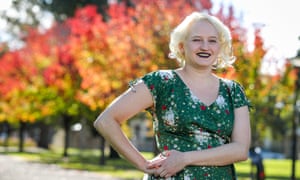Extract from The Guardian
‘Intergenerational welfare dependency’ is a term that makes me see red. Having a low income is not a genetic fault
I
hesitate to start this piece of writing. Every time I reveal a part of
myself I open myself up to more scrutiny, more judgment, more comments
that insult every facet of my personality. The assumptions that I have
never worked or persevered or done anything with my life exponentially
increase with every titbit I reveal. It’s a very vulnerable feeling. But
the most dangerous area of revelation for me is my family.
I have seen some comments on my previous articles “Doesn’t she have family to help her?” Yes, I do. They help me a lot, and I know I am luckier than many because of their help. But my family could also be used as a point of insult for some because of that toxic, ugly term “intergenerational welfare dependency”.
Where do I even begin to explain what is wrong with that term? What
is it about those three words that makes me incensed? Maybe it’s the
fact that this term is almost always used as a term to deride welfare
recipients, to insinuate that claiming a government payment one is
entitled to is a defect of some sort. A genetic flaw passed down from
mother to child (because blame almost always is heaped upon the mother),
some kind of cancer that must be eradicated and reviled. This, to me,
is one of the most galling things in the world.I have seen some comments on my previous articles “Doesn’t she have family to help her?” Yes, I do. They help me a lot, and I know I am luckier than many because of their help. But my family could also be used as a point of insult for some because of that toxic, ugly term “intergenerational welfare dependency”.
My grandmother Emilia knew a thing or two about oppressive work and welfare programs. In Lithuania, when the Russian communists came into power, they tried to make Emilia do a street sweeping detail. It was probably very similar to the current work-for-the-dole programs: demeaning, degrading work which my Baba had no desire or need to do. So she refused. She had already been sent to a collective farm and forced to sleep among strangers in a barn, a terrifying experience for any young woman. I guess she had just had enough of feeling degraded by bureaucrats. I have no idea what the consequences would have been for her, but I’m sure they weren’t pleasant. Using her street smarts she set up a kiosk in the train station, where she sold illicit nylons and cigarettes obtained by my grandfather, and they went along like that till they both fled Lithuania, getting the last train out before Stalin blew up the bridge.
She ended up raising three children in Sydney with my grandfather, who was a violent, terrifying alcoholic. He beat her and the children, my mother included, relentlessly. Working in a biscuit factory, she did the best she could, and eventually started over again in her 70s, freeing herself of the hell that was my grandfather’s violence. She ended up claiming the age pension.

Here we have two members of my family who claimed government payments – payments that they were legally entitled to. And then we come to me. After leaving high school I was unsure what I wanted to study, so I worked as a nanny. And this is when my first bout of arthritis set in.
I could barely brush my hands against anything. The smallest touch would make me almost scream in pain as I went from doctor to doctor trying to find out what was wrong with me. I ended up working in a variety of jobs. I later went into study – and then my endometriosis came to say hello. I won’t get into the nitty gritty of the symptoms but, yeah, it was bullshit.
What does that make me, now I’m on a government payment? Am I the product of failure because I happen to be on a social security payment? I’ve read so many articles where I hear politicians use the fact that my family accessed payments they were legally entitled to as a reason to treat me as less than human. The idea that accessing social security is some kind of “moral disease” is toxic, when in reality most people access those payments to survive, to feed their children and to escape violence. Isn’t accessing payments to make sure your family is fed and clothed the mark of responsibility? Why do we begrudge others trying to survive?
It is for this reason I speak of my family. “Intergenerational welfare dependence” is a term that makes me see red. It implies that having a low income is a disease, passed down in a family like some genetic fault that needs to be bred out. Please think to yourself – what does that term mean? It implies I should be ashamed of my family for the simple fact that they accessed social security. I can’t begin to tell you how it enrages me that my family is used to insult me just because they got payments they were legally entitled to, and now so do I.
I am not a patch on my grandmother. This is a woman who was an orphan by the age of four, raised by her brothers and not able to go to school, yet could read and write in three languages. Who looked after another family’s baby in a refugee camp in the midst of deepest grief about the loss of hers.
There are so many things to judge a person on other than how they get money to eat and be housed. How about resilience? How about the desire to help others, to value community, to recognise oppression? To feel compassion for others suffering violent home lives? How about the ability to empathise and live off the smell of an oily rag?
I know that the one thing that was passed on to me was relentlessness. I am not ashamed of that – I am proud.

No comments:
Post a Comment